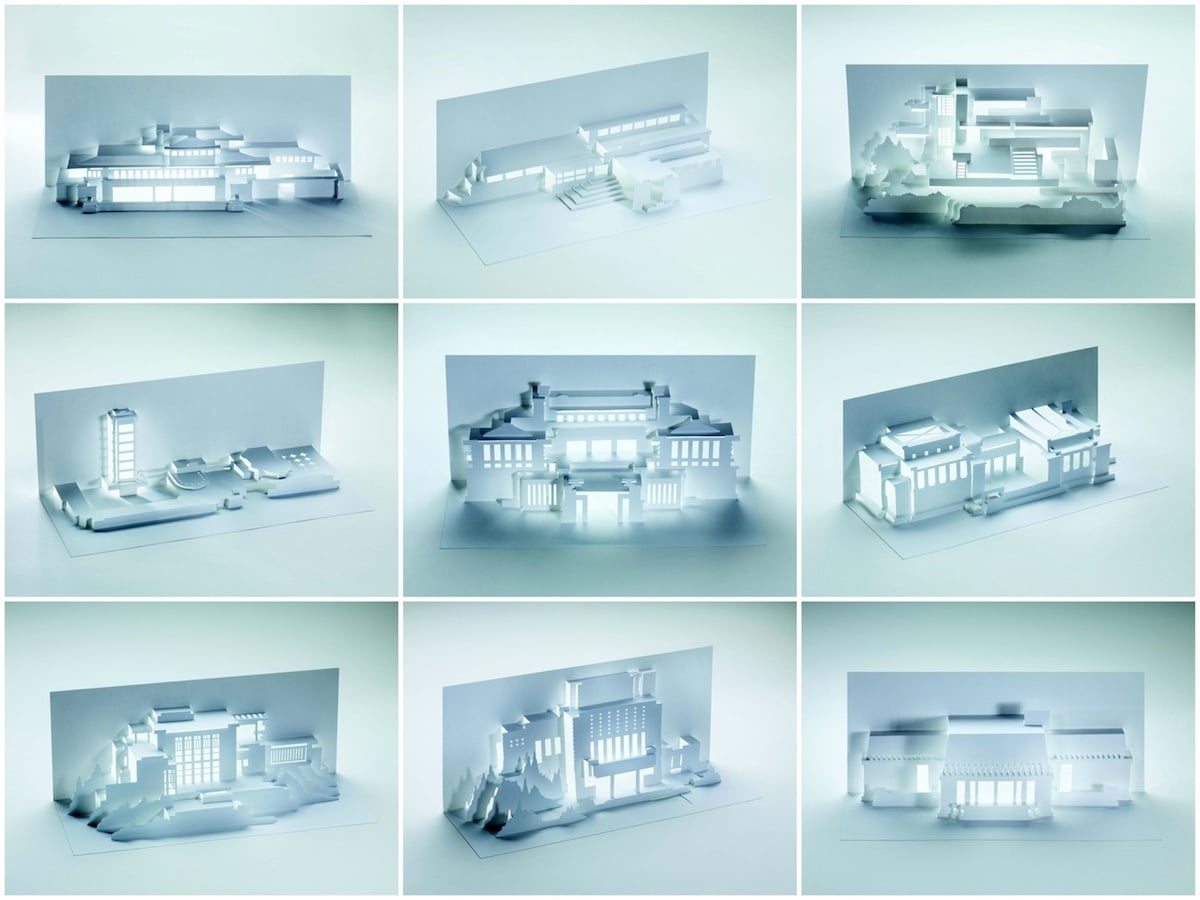
It’s undeniable, the massive influence that architect Frank Lloyd Wright has had on the world. To commemorate his contributions to architecture and design, there’s been an extended celebration of his 150th birthday at renowned institutions like the MoMA. But if you’d like a more hands-on approach to appreciate the scope of his work, you now have the chance to construct some of Wright’s most iconic buildings. A new book called Frank Lloyd Wright Paper Models features 14 structures you can recreate through cutting and paper folding.
Paper engineer Marc Hagan-Guirey is the mastermind behind these models, which use the Japanese art of kirigami to produce their soft, ghost-like forms. A variation of origami, kirigami includes elements of both cutting and folding in its designs. The combination of approaches allow for intricate and precise paper structures.
For Paper Models, there’s step-by-step photographic instructions on how to make these buildings. In addition, the book includes outlined templates that tell you where to fold and cut; some of the more detailed areas are already die cut for your convenience. You need just an X-Acto knife, cutting mat, and straight edge to get started. Once you’re done, famous structures like Fallingwater and the Guggenheim Museum are revealed and ready for display in your home.
Frank Lloyd Wright Paper Models will be on sale starting July 25, 2017. It’s now available for preorder through Amazon.
In continued celebration of architect Frank Lloyd Wright’s 150th birthday, a new book allows you to build 14 of his famous structures.

Fallingwater
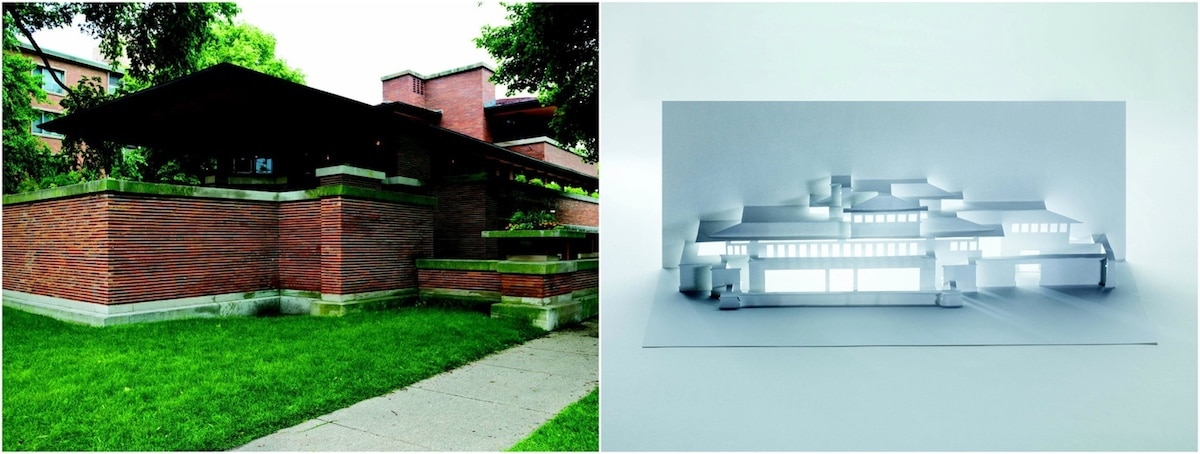
Robie House

Millard House
Precise cutting and paper folding allows the complex designs to emerge from a single sheet of paper.
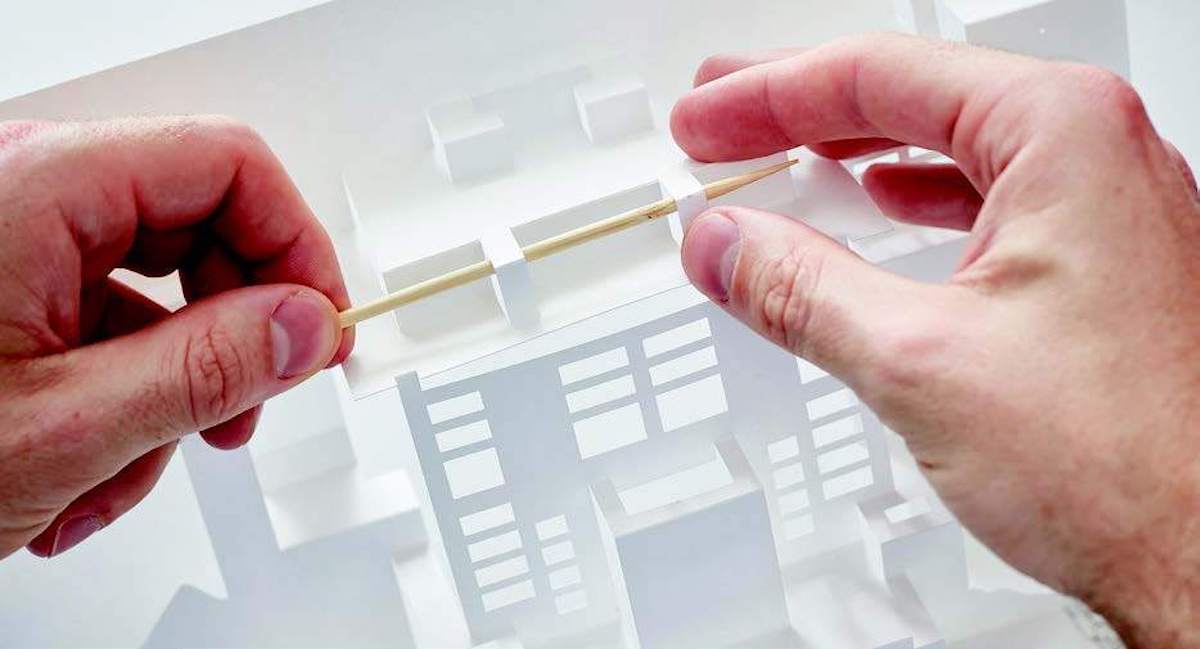

Jacobs House

Hollyhock House

Imperial Hotel


Talieson West

Ennis House
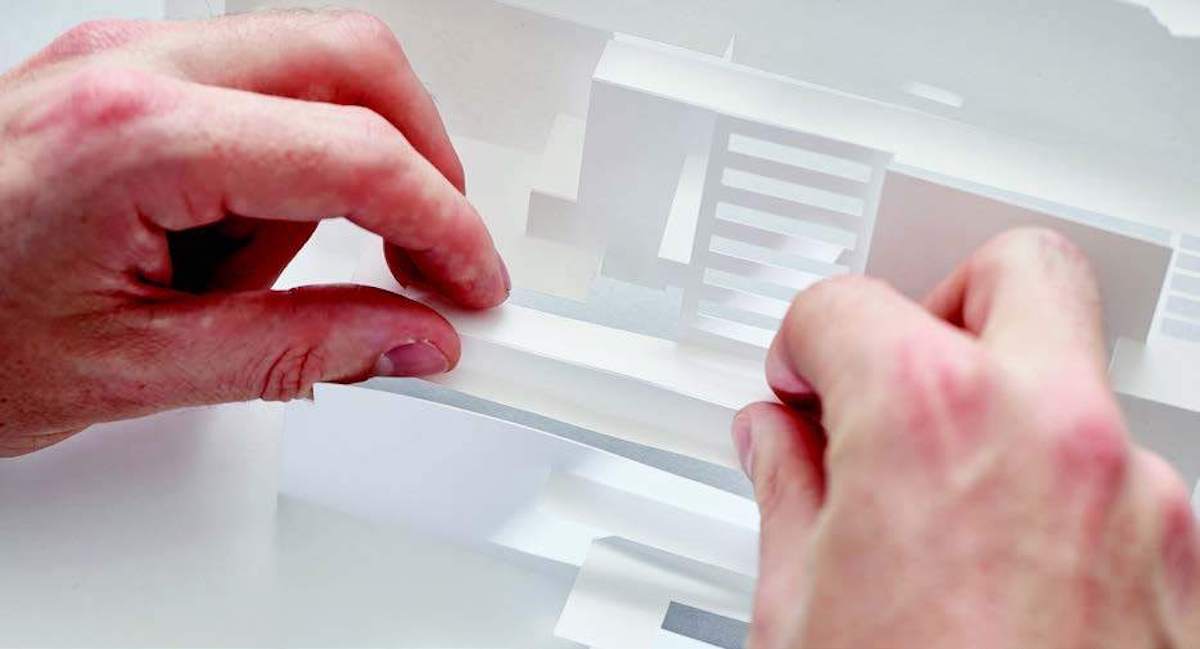

Johnson Wax Headquarters

John Storer
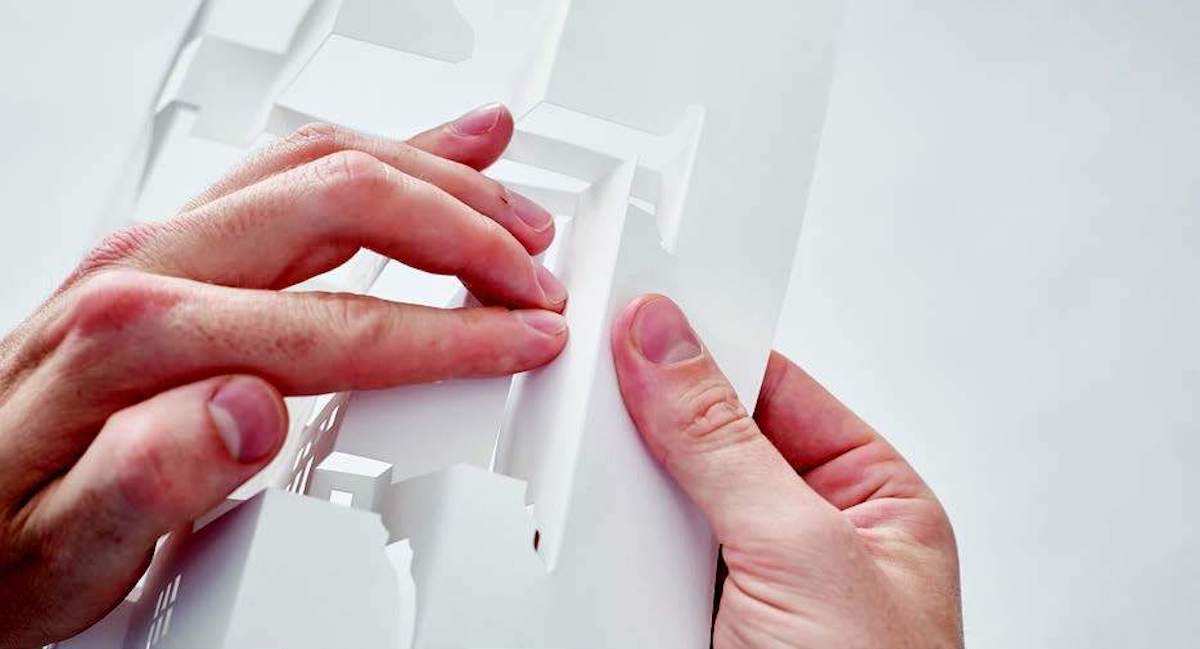

Unity Temple
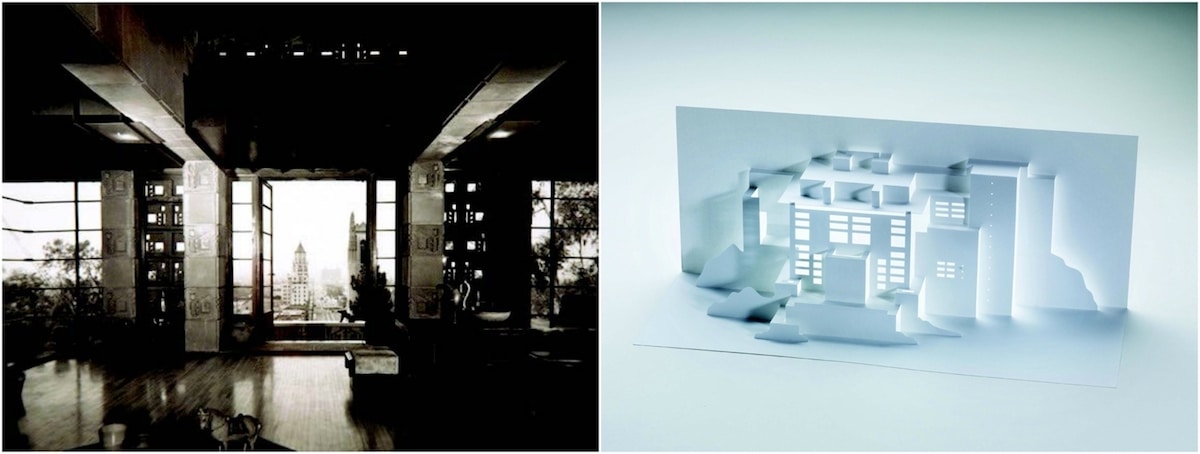
Freeman House
Frank Lloyd Wright Paper Models: Website | Amazon
h/t: [ArchDaily]
All images via Laurence King Publishers.
This post may contain affiliate links. Please read our disclosure for more info.
Related Articles:
Frank Lloyd Wright Exhibition at MoMA Celebrates the Architect’s 150th Birthday
Art History: The Iconic Architecture of Frank Lloyd Wright
Fun Paper Animal Puppets Designed to Move in Unexpected Ways When Touched
